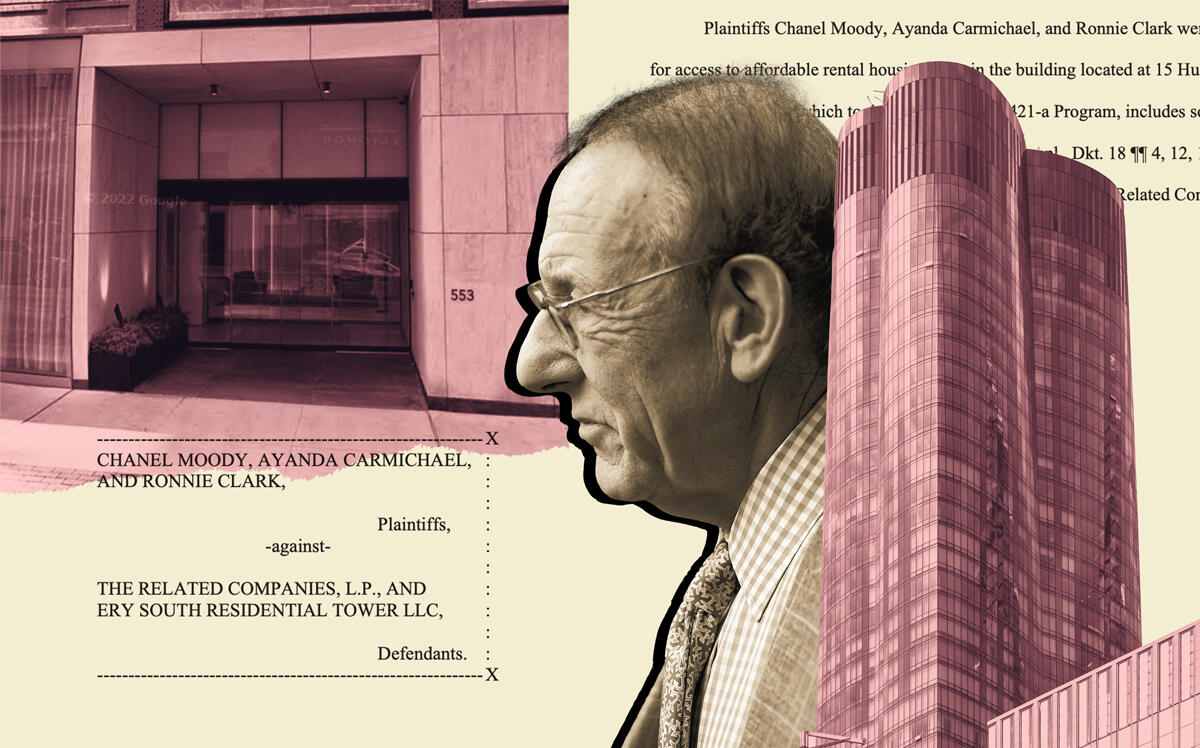A New York federal judge has dismissed a lawsuit accusing Related Companies of discriminating against lower-income residents at 15 Hudson Yards.
Judge Valerie Caproni ruled that the lawsuit failed to show that the building’s design — specifically the placement of affordable units on different floors from luxury apartments — resulted in segregation of Black and Hispanic residents.
The lawsuit did not demonstrate that most of the affordable housing residents are Black or Hispanic, and “woefully fails” to show that Related’s policies resulted in disparate treatment, according to Caproni’s Aug. 10 order.
Last year, Chanel Moody, Ayanda Carmichael and Ronnie Clark sued Related after winning the city’s affordable housing lottery to rent at 15 Hudson Yards. Their suit alleged that the affordable apartments at the tower — a requirement of the tax break 421a — were separated from the spaces used by the luxury condominium unit owners, forcing lower-income residents to use “poor doors” to reach their apartments.
The prospective tenants, who are Black, alleged that the separation perpetuated segregation, given that the low-income units are largely occupied by minorities. They ultimately decided against moving to the building.
But the judge also found that the lawsuit did not adequately show that Related’s “racially neutral policies disproportionately steer Black and Hispanic renters away from the property.”
“There are no allegations that even remotely suggest that non-Black and non-Hispanic affordable housing tenants disproportionately accepted apartments in the building, nor that Black and Hispanic affordable housing tenants disproportionately rejected those apartments,” the order states. “Without such allegations, it is impossible to conclude that the policies at issue contributed to racial segregation in the building as a whole.”
Mark Shirian, an attorney for would-be residents Moody, Carmichael and Clark, said he plans to appeal the judge’s decision and might bring a case in state court to pursue claims that she did not address.
A representative for Related called the lawsuit “a frivolous, headline-chasing endeavor.”
The 421a property tax break has long required developers who receive it at projects in high-income areas to provide affordable housing in return. At one time, they could comply by funding low-income projects by other developers in other parts of the city.
But when the tax break was amended to require affordable units in the buildings receiving the benefits, some developers created separate entrances for those units. Critics dubbed them “poor doors” and persuaded the state legislature to ban them in future projects, but existing ones were allowed to remain.
